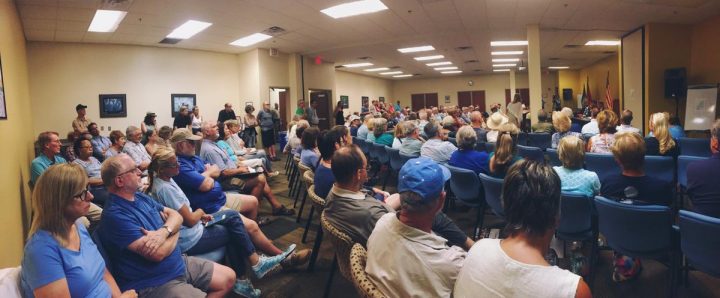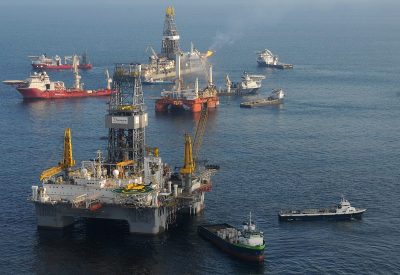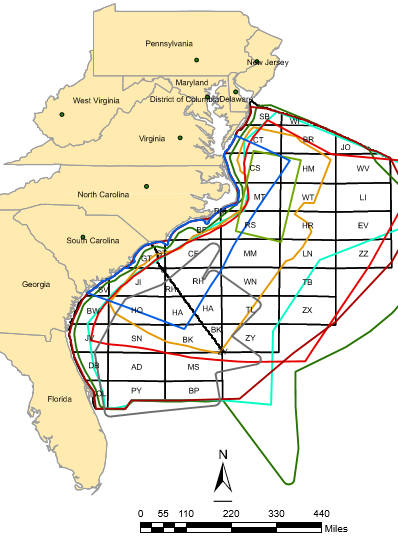
WILMINGTON – Gov. Roy Cooper’s message last month to Washington echoed throughout a state-hosted public hearing Monday night on the proposed federal offshore leasing program.
The North Carolina governor’s stern statement “not off our coast” or a variation thereof reverberated throughout the two-hour public hearing attended by about 175 people.
Supporter Spotlight
An overwhelming majority spoke in opposition to offshore oil and gas exploration and drilling, expressing concerns about how such activity would result in oil spills, destroy the coastal economy and irreparably harm the environment.
“I’ve heard the argument many times ‘let’s update the seismic geological and geophysical data because what we have is old and we don’t know what’s out there,’ ” said Hampstead resident Jack Spruill.
Standing at a podium at the front of a sprawling room in the New Hanover County Government Center, Spruill followed that statement with the adage, “You better not go a courtin’ if you’re not prepared to get married.”
“I’m concerned about all aspects of this issue,” he said.
The one facet he chose to focus on during his three-minute allotted time to speak was onshore infrastructure.
Supporter Spotlight

Spruill lived in southern Louisiana for eight years. He spent half of those years as a Navy Reserve officer attached to a destroyer based in New Orleans.
It was in The Big Easy where Spruill said he saw the onshore infrastructure that supported offshore drilling in the Gulf of Mexico.
“Probably the simplest thing to talk about is pipelines,” he said. “Pipelines have to be buried in south Louisiana, just like they would have to be buried in North Carolina. It can’t come ashore through our inlets. All of our inlets are too unstable and we have to dredge them. Which one would we pick to have the pipeline come ashore?”
Spruill was one of more than 35 North Carolina residents, business owners and area elected officials who spoke at the meeting where attendees were repeatedly asked to refrain from applauding as a show of respect for everyone.
The hearing was the first of three the North Carolina Department of Environmental Quality, or DEQ, is hosting along the coast this week to gather public comments about the five-year national outer continental shelf oil and gas leasing program.
The program would open the door to oil and natural gas exploration in the Atlantic Ocean from 2019-2024.
Seismic testing, the process of determining how much oil and gas are underneath the ocean floor, is controversial in itself.
These tests use air guns to send sonic waves that penetrate the ocean floor. How those waves are reflected from the bottom gives hints to the location and extent of oil or natural gas deposits below the surface.
The blasts of sound may cause physiological distress and disturb the normal behavior patterns of marine mammals, according to marine mammal experts.
Oil and gas industry representatives argue that strict federal regulations and testing oversight protect marine mammals. And, they say, new geological and geophysical technology could further reduce the effects on marine wildlife.
Both points were raised Monday by North Carolina Petroleum Council Executive Director David McGowan at the hearing.

McGowan, a Wilmington native, was the first of a small handful of people who said they support the federal leasing program.
He urged the crowd to engage in “thoughtful dialogue” and “fact-based” debate.
McGowan said he’s proud to represent an industry that directly and indirectly supports more than 145,000 jobs in North Carolina. That number came from a 2014 American Petroleum Institute “Onshore Oil and Gas Vendor Identification Survey.”
As he walked from the podium, people in the audience shouted “No! Never!” and “Sit down!”
Some of the speakers who followed McGowan retorted that the industry was supporting enough North Carolina jobs without offshore exploration and drilling.
Cooper announced July 20 he does not support drilling off the North Carolina coast. He already has submitted anti-drilling arguments to the U.S. Department of Commerce.
The governor has until Aug. 17 to respond to the federal five-year leasing plan.
Several who spoke against offshore exploration and drilling expressed frustration that they were defending the same arguments they had expressed a few years ago.
Shortly before leaving office, President Barack Obama declared Atlantic and Arctic waters off-limits for offshore drilling.
President Donald Trump in April issued an executive order to resume federal reviews of a half-dozen geological and geophysical, or G&G, applications to explore the Atlantic.

“We’ve already been through this fight once,” Carolina Beach resident Scott Veals said. “We don’t need this off our coast. We need to have something in place that says this is the way it is and we’re not going to change it.”
More than 30 coastal communities in the state have passed resolutions opposing offshore oil and gas exploration and drilling.
The list includes Kure Beach, which became the 100th community on the East Coast to adopt an anti-drilling resolution. The town council passed the resolution in 2016 after the former mayor was ousted for signing an oil industry lobbying letter supporting offshore exploration.
“It’s just not a good idea and the town still has the same opinion on offshore drilling,” Councilman Joseph Whitley said.
Wilmington resident Scott Hunt said he had not planned to speak at the public hearing until one of the speakers equated employees in the oil and gas industry to an increase in crime and sexually transmitted diseases. Hunt said those comments prompted him to share his 10-year experience as an employee in the offshore industry where he primarily conducted seismic surveying.
“I hate public speaking,” he said. “I really don’t do this. I never had any of the experiences with damage to the environment, damage to marine life, any of that. I just want to say I think we should give it a fair shot. Certainly, accidents happen, but we’re not going to shut down airports because we occasionally have a plane crash.”
Wilmington resident and physician Dr. Robert Parr verbally painted a picture of chronic oil spills from leaking rigs in the Gulf of Mexico.
“There’s approximately 30,000 wells in the Gulf that are gushing oil, dripping oil,” Parr said. “So, while we’re here today talking about this the water is being contaminated. Drip, drip, drip.”
He addressed a common theme throughout the hearing – that this community is in the middle of a fight about the recently revealed contaminant Gen-X in the Cape Fear River.
“We have water in New Hanover County and all along the Cape Fear that is poisoned,” Parr said. “We were promised that that wouldn’t happen.”
North Carolina Division of Coastal Management Director Braxton Davis said the public hearings will be summarized and released following the Aug. 15 deadline for residents to submit written comments.
The next public hearing will be 5 to 7 p.m. Wednesday at the Crystal Coast Civic Center in Morehead City. The final hearing will be hosted 5 to 7 p.m. Thursday at the Dare County Government Complex.







